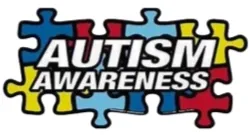Life is a balance of holding on and letting go ~ Rumi
Let’s talk control, Karen Kerr, LPC, LCADC, NCC
“If people would only do what I want them to do, my life would be perfect?” How often have you found yourself muttering those words? If never, good for you!
Clients tend to seek out counseling for a number of reasons. Frequently, symptoms may appear as depression, anxiety, stress, and anger. Often, some will present with a pattern of negative thinking that exhibits itself as low self-esteem, fatigue, guilt, fear, irritability, conflict with others, difficult relationship patterns or just feeling overwhelmed.
Now, this isn’t to say that everyone who seeks counseling present with these symptoms. It is also important to also understand that these symptoms can be the result of one simply learning how to adjust to a new life situation such as the birth of a baby, marriage, divorce or even changing jobs. On the other hand, it is important to acknowledge that these types of symptoms can be indicative of a more serious problem such as trauma, bipolar disorder or other mental health difficulties that may need further assessment by a mental health professional. Therefore, this article is not suggesting a diagnosis of anyone it is merely the experience of this writer and discussion on the topic of CONTROL.
Now ask yourself the question again. Wouldn’t life be perfect if only the people in your life would do what you wanted them to do? Think about it. I would guess you answered: YES!!
If people did what you expected of them wouldn’t you have less stress and worry? If your children cleaned their rooms and put their things back where they belong the first time you ask, wouldn’t that be great? Wouldn’t life be wonderful if your spouse cooked dinner one night, helped with the laundry, helped pay the bills or even mowed the lawn? And what about your co-workers? Wouldn’t the day run smoother if your co-worker would show up on time and do their share of the work? YES!! I agree life would be more perfect if the people our lives did what we want them to do!!
The problem is that while it sounds great on paper in theory it is not reality. The truth is we don’t have control over the people in our lives no matter who it is. We cannot control our spouse, our children, our friends, our co-worker, our boss not even the person who cuts us off in traffic. Consequently, the concept of control becomes a problem and will manifest itself in some of the symptoms mentioned above when we unconsciously think or behave in ways that have us believing that we do have control.
For example, let’s say you made plans with a friend recently to meet her for lunch. You both have busy lives and you arranged your schedule to accommodate her hours because she works more. Isn’t it frustrating when your friend calls to cancel and waits until the last minute to notify you? In this situation, do you have control over your friend canceling? Absolutely not! What might happen if you responded to her unkindly? I would guess it might leave you feeling guilty about over reacting and then in turn it might leave you both feeling hurt and angry.
What is the solution? The solution comes in the understanding of what we do and do not have control over. To illustrate, think of a large circle that represents all of the things that a person does not have control over: Traffic, weather, illness and time. We also don’t have control over other people and their thoughts, feelings, actions or judgments. In the inside of the circle is a smaller circle that represents the only thing we do have control over: our thoughts, our feelings and our behaviors. Therefore, the KEY is to realize that our superpower lies in how we choose to react and respond to the situations in life that we cannot control.
Take a moment to think that idea over.
What circle are you in when you are stressed out, anxious or irritable? Focusing on the things that you can’t control means you’re resisting to accept your reality: The only thing you’re capable of controlling is yourself. When we can choose not to overreact to the situations beyond our control, then life can be experienced as more serene. Stress levels will decrease, relationships improve and then we can truly experience all the good that life has to offer.











